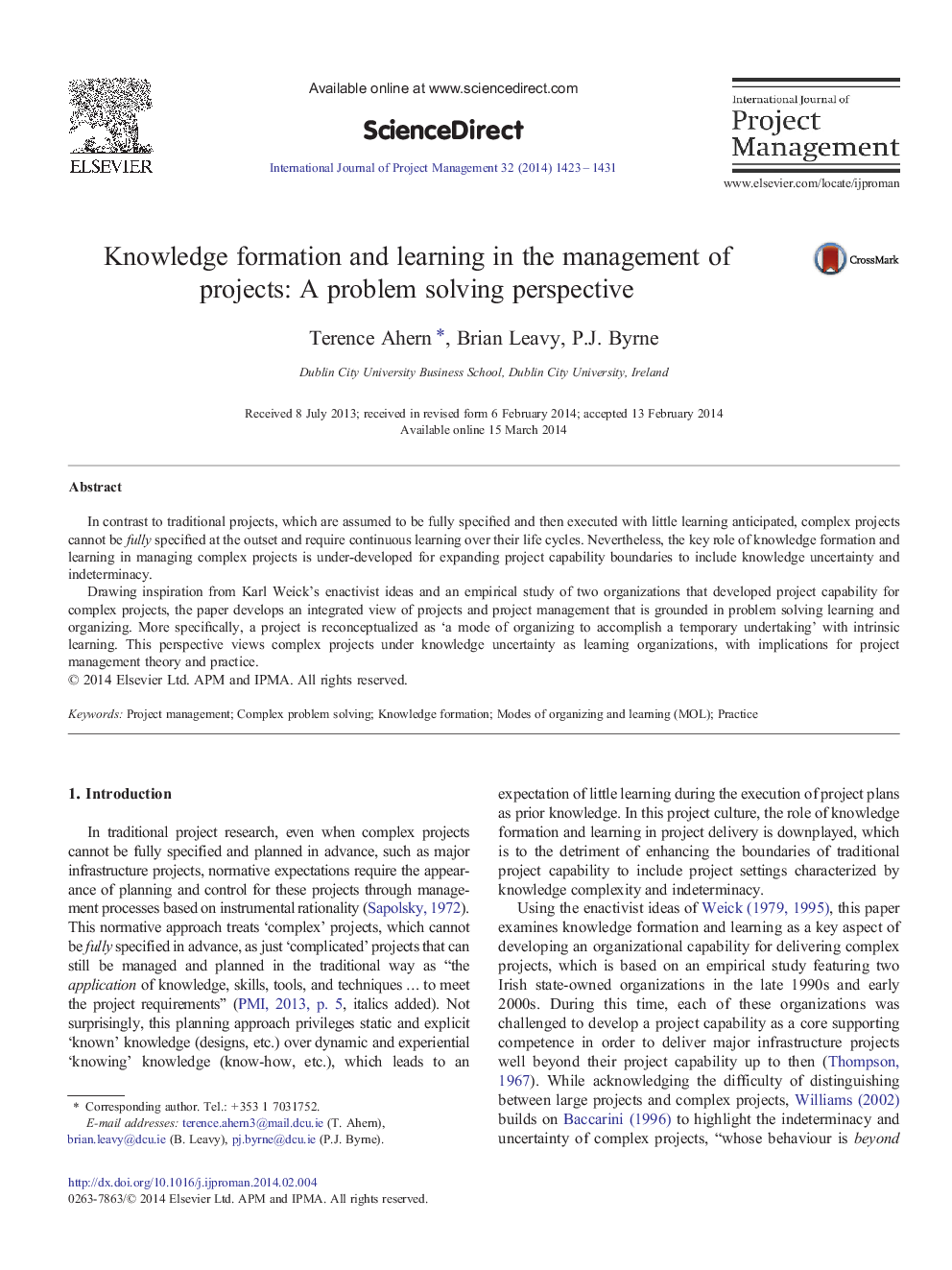| Article ID | Journal | Published Year | Pages | File Type |
|---|---|---|---|---|
| 275784 | International Journal of Project Management | 2014 | 9 Pages |
•Unlike traditional projects, complex projects cannot be fully specified from start.•Complex projects need continuous learning over their life cycles.•Organizing and learning are mutually constituted through problem solving.•Projects and project management are interrelated modes of organizing and learning.•A project is a mode of organizing to accomplish a temporary undertaking.
In contrast to traditional projects, which are assumed to be fully specified and then executed with little learning anticipated, complex projects cannot be fully specified at the outset and require continuous learning over their life cycles. Nevertheless, the key role of knowledge formation and learning in managing complex projects is under-developed for expanding project capability boundaries to include knowledge uncertainty and indeterminacy.Drawing inspiration from Karl Weick's enactivist ideas and an empirical study of two organizations that developed project capability for complex projects, the paper develops an integrated view of projects and project management that is grounded in problem solving learning and organizing. More specifically, a project is reconceptualized as ‘a mode of organizing to accomplish a temporary undertaking’ with intrinsic learning. This perspective views complex projects under knowledge uncertainty as learning organizations, with implications for project management theory and practice.
